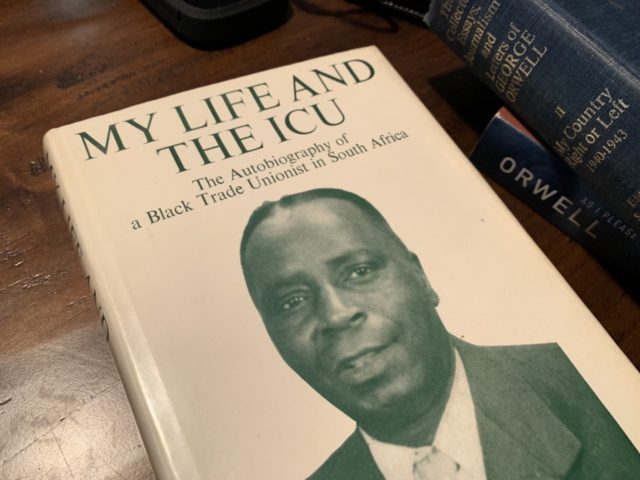This year marks the 100th anniversary of the founding of the Industrial and Commercial Workers’ Union (ICU), the first black trade union in Africa, by Clements Kadalie.
Much like Mahatma Gandhi, whose experience of racial discrimination on a South African train inspired a lifetime of struggle, Kadalie, an educated “native” from Malawi, was motivated to become an activist after being pushed off the sidewalk by a white policeman in Cape Town.
On January 17, 1919, Kadalie held the ICU’s first meeting, and registered 24 members. The ICU would spread across South Africa at a rapid pace, exceeding 100,000 members at its zenith.
Kadalie won wage increases and better working conditions for African and “Coloured” (mixed-race) laborers — incurring, as he did, the wrath of white unions, who were agitating for an aggressive “colour bar” to exclude black competitors for industrial jobs.
Kadalie overcame the racism of the white South African trade unions by taking his case for black workers abroad, to the United Kingdom and continental Europe in 1927. He was among the first black leaders to make the case for the continent directly in the halls of power.
The ICU waned in subsequent years, owing to tribalism and greed that have become, sadly, hallmarks of South African politics to this day. But Kadalie had paved the road to freedom.
Ideologically, Kadalie rejected both the African nationalism of Marcus Garvey, and the communism whose agents tried to insinuate themselves into the ICU and steer it in a pro-Soviet direction.
He declared himself a “socialist,” at a time when that term meant something. He was also a democrat, in the lower-case sense, and urged the few black South Africans who had the franchise to use their vote strategically, not blindly to follow the party of the left.
It is difficult to find fault with “democratic socialism” as Kadalie understood it, in the circumstances he faced. He lived in a world where the mass of people had no meaningful political rights, and were forced to participate in the economy on exploitative terms. “Democracy” and “socialism” were aspirational terms in a world where inequality was not a natural outcome of economic competition but forcibly imposed by laws that ran against the free market.
It was also possible to believe, as George Orwell once did, that “democratic socialism” — that is, a system in which the state controlled economic decisions, and people had an equal say in how it would do so — might actually work.
Prior to his disillusion with socialism, Orwell wrote in “The Lion and the Unicorn” in 1940: “It is not certain that Socialism is in all ways superior to capitalism, but it is certain that, unlike capitalism, it can solve the problems of production and consumption.”
No reasonable person would say the same today. And while America’s contemporary “democratic socialists” often point to Europe, especially Scandinavia, as proof of the viability of socialist policies, the obvious reason Europe has been able to afford a generous welfare state is it depends on the U.S. for defense. It is also unclear how American socialism can deliver the promised goods while insisting on an “open borders” policy.
In the end, prosperity depends on the individual, whom capitalism does a better job of motivating — not only for his or her own benefit, but for the benefit of others.
Looking back on his life, Kadalie wrote: “I believed, as I believe now, that the salvation of the Africans in this country will be brought about through their own sweat and labour.”
What he demanded was to share fairly in the fruits thereof. He called it “socialism.” Its better name is “liberty.”
Joel B. Pollak is Senior Editor-at-Large at Breitbart News. He is a winner of the 2018 Robert Novak Journalism Alumni Fellowship. He is also the co-author of How Trump Won: The Inside Story of a Revolution, which is available from Regnery. Follow him on Twitter at @joelpollak.
Note: Clements Kadalie’s autobiography, My Life and the ICU: The Autobiography of a Black Trade Unionist in South Africa, is out of print but available on Amazon.

COMMENTS
Please let us know if you're having issues with commenting.